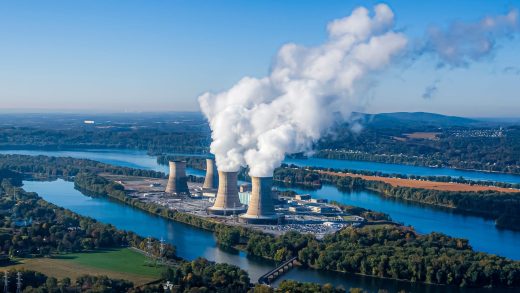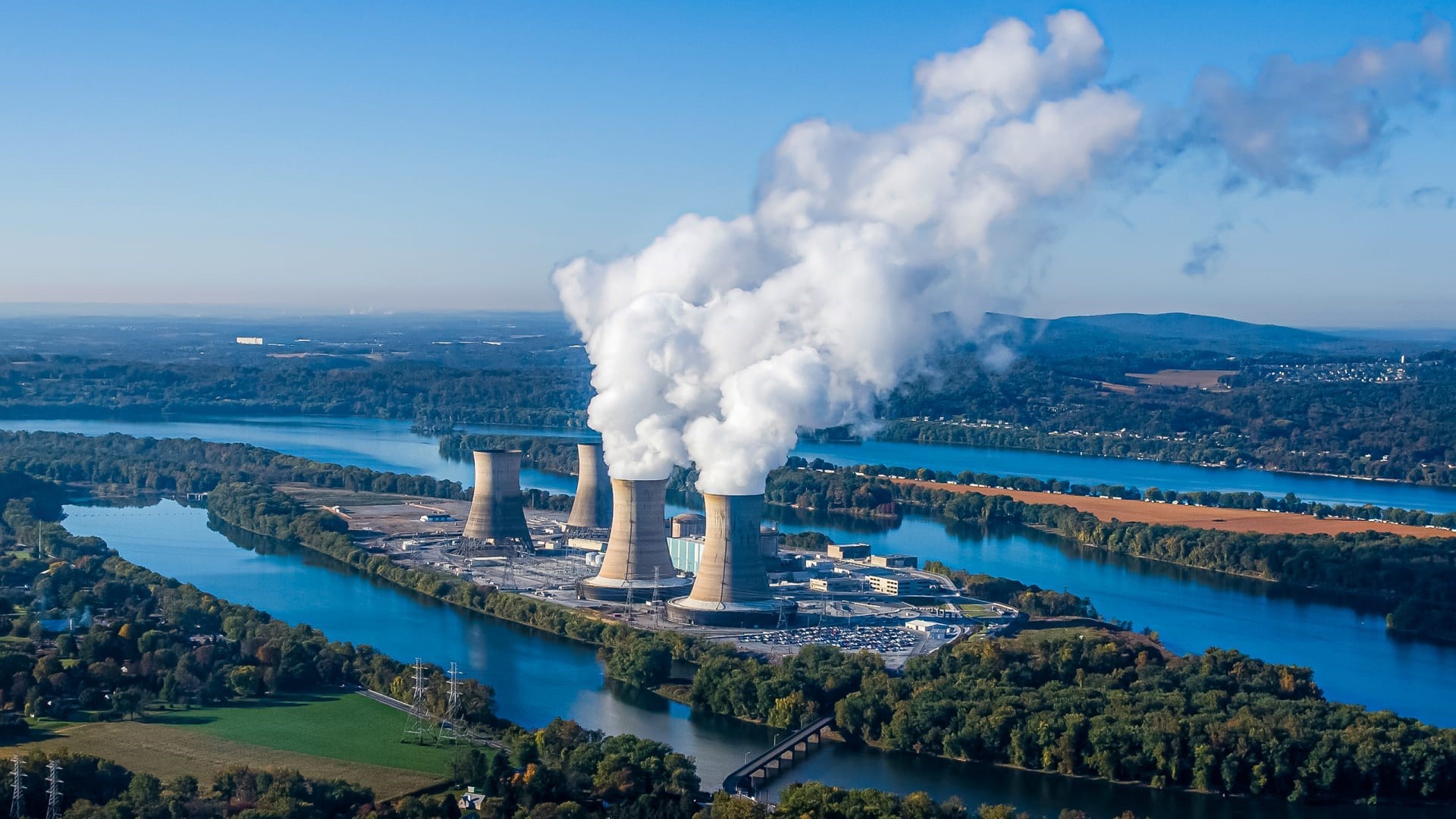Three Mile Island was the site of the country’s worst nuclear disaster. Now AI energy demands might turn it back on
Three Mile Island was the site of the country’s worst nuclear disaster. Now AI energy demands might turn it back on
Despite the infamous meltdown, owners of a third of the U.S.’s nuclear plants are reportedly in talks with tech companies to help power data centers.
BY Chris Morris
In 1979, a partial meltdown of a reactor at the Three Mile Island nuclear plant along the Susquehanna River in Pennsylvania brought America’s nuclear fears to life. For the past five years, that plant has been dormant, but a movement is underway to turn things back on, as demand for power sources by artificial intelligence companies continues to grow.
The Washington Post reports that Constellation Energy, which owns Three Mile Island, is considering a restart of the facility’s Unit 1 reactor. (That facility sits next to the Unit 2 reactor that had the partial meltdown, which was the country’s worst nuclear accident in history.)
“Though we have determined it would be technically feasible to restart the unit, we have not made any decision on a restart as there are many economic, commercial, operational, and regulatory considerations remaining,” Dave Snyder, a Constellation spokesperson, told Fast Company.
That echoes comments made in May from CEO Joseph Dominguez, who was asked on an analyst call if the company was considering a Three Mile Island restart. Dominguez replied, “We’re doing a good bit of thinking about a number of different opportunities, and that would probably be certainly one of those that we would think about. But we’re not there yet to start disclosing capital and other things relating to that opportunity.”
And any restart, the company reportedly told investors, would take several years.
Unit 1 of Three Mile Island was shut down (“permanently shut down” was the language at the time) on September 20, 2019, after starting operations in 1974. Constellation purchased the unit in 2000, and it produced enough electricity in the following years to power 800,000 homes for almost two years and “offset more than 95 million metric tons of carbon, the equivalent of nearly 20 million cars off the road,” the company says. (Constellation was not the owner of the Unit 2 reactor; FirstEnergy, which owned Unit 2, sold it to Energy Solutions in December 2020 to complete its decommissioning process.)
Powering up Three Mile Island again would first require the approval of the Nuclear Regulatory Commission (NRC). Safety advocates, however, worry that the NRC might be pressured to overlook possible safety issues. Nuclear reactors generally have a life span of 60 years or so, but that can potentially be expanded with updates to components.
Hunger for AI energy grows
The power demands of AI data centers and their impact on the U.S. power grid has been a growing concern for months. Power sector consulting firm Grid Strategies’ projected growth forecast for North America has essentially doubled from where it stood last year, as companies begin construction on AI hosting facilities that make the demands of traditional data centers look miniscule.
Last year, the five-year forecast from the firm projected growth of 2.6%. That number has since nearly doubled to 4.7%—and planners expect peak demand to grow by 38 gigawatts. To put that in perspective, it’s enough energy to power 33.3 million homes, roughly one-quarter of the total number in the country, for an entire year.
“The U.S. electric grid is not prepared for significant load growth,” Grid Strategies warned.
The Wall Street Journal reports that the owners of approximately one-third of the country’s nuclear power plants are talking with tech companies, including AI leaders, to help power data centers. That’s raising concerns about the impact on the larger power grid, which has struggled as the country experiences extreme weather conditions.
It’s also fueling the drive to bring decommissioned plants back online. Beyond the possible Three Mile Island reboot, the Palisades nuclear plant in Michigan is expected to be back up and running by the end of next year, and energy company NextEra is considering restarting a nuclear plant in Iowa. And several other states, including West Virginia and Connecticut, have lifted moratoriums on new nuclear plants.
“I think the interest is like nothing else we’ve seen in 20 years,” said Dominguez on the earnings call. “Right now, it’s focused on nuclear because the clients we’re dealing with aren’t interested, as a general rule, in emitting technologies. They have sustainability goals. They have 24/7 clean goals, and they want to stay on that path.”
ABOUT THE AUTHOR
(9)



